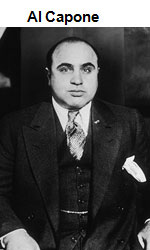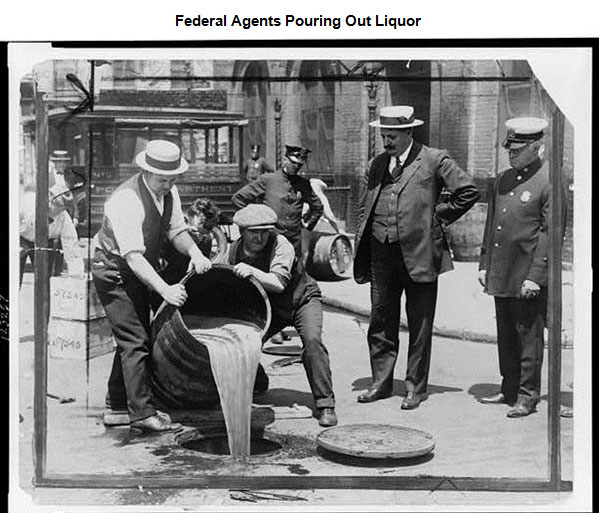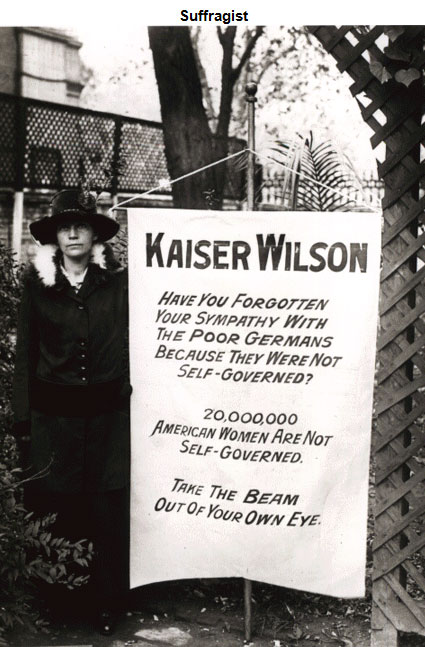
Source: Al Capone around 1935, Officer, Wikimedia
The Roaring Twenties opened with two constitutional amendments that not only had a political impact, but they each had a social impact, as well. Read more about the 18th and 19th Amendments below. Click on the image.
The era of Prohibition began with the 18th Amendment. This ban on the sale, manufacture, and transportation of alcoholic beverages existed as a result of the Temperance Movement. However, by ridding the country of intoxicating liquors, the ban ushered in a wave of organized crime and corruption. People found ways to circumvent the new laws of Prohibition. Secret clubs or speakeasies were created in various places, and women joined men in drinking alcohol.

Source: Al Capone around 1935, Officer, Wikimedia
To fulfill the public’s secret demand for alcohol, people continued to sell, manufacture, and transport alcohol anyway. This led to the rise in organized crime, gang activity, and corruption. One of the most famous criminals of this period was Al Capone.
Capone, a Chicago gangster, was the era’s most notorious criminal. He was responsible for organizing, smuggling, and bootlegging alcohol, as well as other illegal activity. Capone is said to have made millions from his operations; he was later convicted and imprisoned for federal tax evasion.
The federal government worked hard to combat the organized crime caused by Prohibition. The Bureau of Prohibition was created to combat the criminal issues of Prohibition.

Source: New York City Deputy Police Commissioner John A. Leach, right, watching agents pour liquor into sewer following a raid during the height of prohibition, Library of Congress
The United States government spent millions of dollars in manpower and money chasing down criminals violating the 18th Amendment. By the end of the decade more and more Americans felt that the constitutional amendment was doing little to cure the ills of alcoholic beverages. In 1933, Congress repealed the amendment.
![]() Click on the image below to learn more about the ban on alcoholic beverages.
Click on the image below to learn more about the ban on alcoholic beverages.
Source: 19th Amendment to the U.S. Constitution, Women's Right to Vote (1920), Our Documents
Another constitution amendment with both political and social impact was the passage of the 19th Amendment. Ratified by Congress on June 4, 1919, the 19th Amendment guaranteed all women the right to vote. This change not only empowered women with a new political voice in America, but women had a new voice in many aspects in American society.

Source: New York City Deputy Police Commissioner John A. Leach, right, watching agents pour liquor into sewer following a raid during the height of prohibition, Library of Congress
The passage of the 19th Amendment was the result of the political work the suffragist movement had done in the 1800s. Many of the women who had worked so hard to gain the right to vote did not live long enough to see their victory in 1920.
![]() There were three presidents that served during the Roaring Twenties. Each of them had political, as well as economic and social impacts on the United States during the 1920s.
Click on the tabs below to learn more about each president.
There were three presidents that served during the Roaring Twenties. Each of them had political, as well as economic and social impacts on the United States during the 1920s.
Click on the tabs below to learn more about each president.
Sources for images used in the interactives in this section: